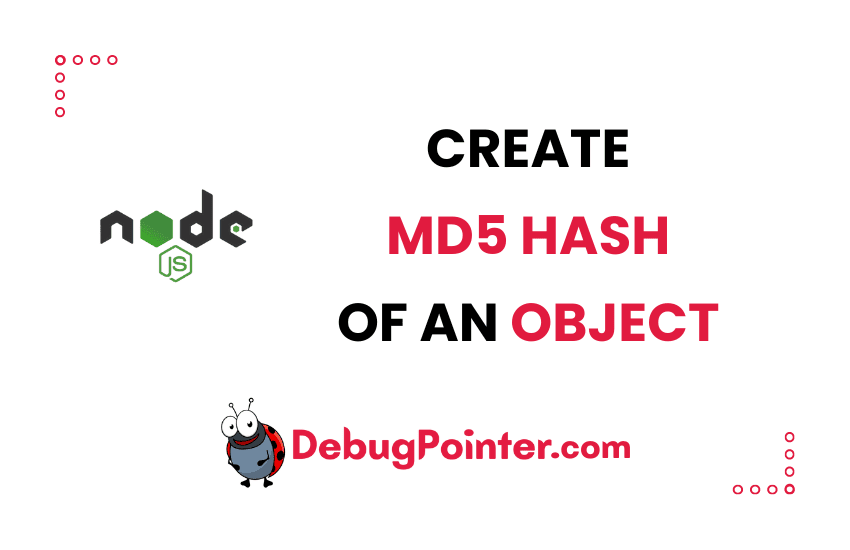As a Node.js developer, I’m always seeking new ways to solve complex problems, and one tool I frequently rely on is MD5 hashing. So, I thought, why not share this valuable knowledge with you? In this article, we’re going to delve into the world of MD5 hashing in Node.js, specifically focusing on creating an MD5 hash of an object. It’s a fascinating topic that I’m sure you’ll find as useful and intriguing as I do.
As we’ve seen in earlier posts, you can create an MD5 hash of a string and generate a hash in string type.
Creating an MD5 hash of an object in Node.js
In this section, we’ll explore how to create an MD5 hash of an object in Node.js. We’ll start by creating a new Node.js project and installing the crypto module. Then, we’ll create a new file called index.js and add the following code to it:
In Node.js, an Object is a data structure that stores key-value pairs. The keys are used to access the values.
Example –
const person = { name: "Vamana", age: 20 };In case you are working on the frontend (JavaScript, React, Vue or so), you can work with the cryptoJS library to create MD5 hash of an Object.
But, what if you had to create an md5 hash of the person object above? We can do it by first converting the Object type to string format. Note that, a object doesn’t maintain the order of keys (key:values), so the value can change randomly when you try to use it as a complete object. For this reason, we will sort the keys and then convert it to a string, to make sure that the order of keys is consistent always. We do this by sorting the person object to orderedPerson object and then performing a JSON.stringify() to stringify the JSON object as shown in the example below.
Here is an example with complete code of the above mentioned implementation.
import { createHash } from "crypto";
const person = { name: "Vamana", age: 20 };
const orderedPerson = Object.fromEntries(Object.entries(person).sort());
const hash = createHash("md5")
.update(JSON.stringify(orderedPerson))
.digest("hex");
console.log(hash);The output of the above JavaScript code will return a MD5 hash of the stringified version of the object-
267754bb3882c89041b0db2622f5b241I’m glad that you found this article to create MD5 hash of an object in Node.js useful. We’ve come a long way, haven’t we? Together, we’ve explored the art of creating an MD5 hash of an object in Node.js. I hope this journey has been as enlightening for you as it’s always been for me. Always remember that while hashing may seem complex, it’s a powerful tool in our arsenal that can help us solve an array of complex problems. So, don’t stop here, keep coding, keep exploring, and most importantly, keep hashing! Happy Coding.
